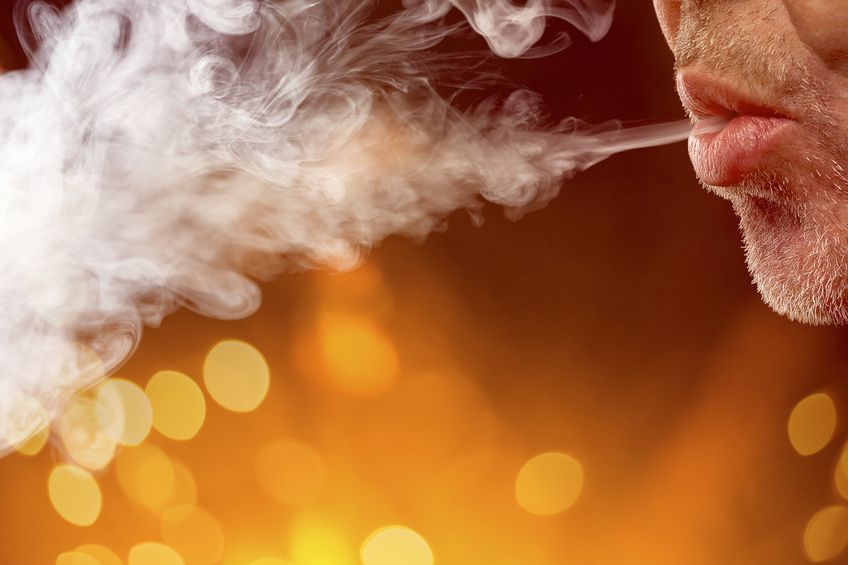
(Vienna, 29 May 2018) The annual World No Tobacco Day on 31 May is a World Health Organization (WHO) campaign and this time is focussing on "Tobacco and heart disease". Smoking and passive smoking are responsible for around 12% of deaths from coronary heart disease worldwide. Internist Manfred Neuberger from MedUni Vienna's Division of Environmental Hygiene also warns that the daily use of e-cigarettes doubles the risk of heart attack.
According to the last Statistik Austria health survey conducted in 2014, 1.8 million Austrians smoke on a daily basis. According to "Eurobarometer", Austria is in fourth place among EU countries, with 33% of the population smoking. The Ministry of Health estimates that 14,000 people die in Austria each year as a result of smoking.
Following an amendment to the Smoke-Free Environments Act, smoking has been banned in public places in Austria since May 2018, without the option of having special smoking areas in classrooms or on public transport. However, an exception is made for the catering industry, whereby, depending upon the size of the establishment, separate areas are allowed or small establishments can declare themselves to be either smoking or no-smoking establishments. Smoking in cars is also prohibited when children or adolescents are on board.
This amendment to the law provides an opportunity for internist Manfred Neuberger, MedUni Vienna emeritus professor of environmental hygiene, to point out the health risks associated with tobacco smoke. Most people know that smoking cigarettes can cause many different diseases, including cardiovascular diseases. However, the risk associated with e-cigarettes is greatly underestimated, says Neuberger: "We now know that cardiovascular diseases such as heart attacks and strokes can also result from the oxidative stress caused by e-cigarettes. This is further exacerbated by the vascular effects of nicotine."
E-cigarettes do not burn tobacco but vaporise a liquid that mostly contains nicotine. The main component is often propylene glycol, which is responsible for the vapour that is produced. E-cigarettes also contain flavourings such as menthol, vanilla and the like. Researchers have differing opinions about the long-term effects of e-cigarettes. However, according to Neuberger, the latest American studies suggest that their regular use causes the same problems as tobacco smoke. There is a reduction in heart rate variability, hardening and reduced expandability of arteries, increased blood clotting and increased oxidation of lipoproteins, thereby increasing the risk of cardiovascular disease over time.
Says Neuberger: "The daily use of e-cigarettes doubles the risk of a heart attack, tobacco cigarettes triple the risk and the alternate use of tobacco and e-cigarettes increases it fivefold." Even nicotine-free e-cigarettes harbour risks such as inflammatory reactions of the airways and epithelial damage in the mouth and lungs, presumably caused by irritants and free radicals present in the aerosol. Neuberger sees e-cigarettes that contain nicotine as a particular problem, since they would make it easier to become addicted to nicotine and make it harder to break the addiction.
Just as dangerous are the heat-not-burn tobacco products, so-called "heets", which have recently come onto the market. These heat up real tobacco but do not burn it. They would produce substances that could cause genetic mutations and be potentially carcinogenic. Because of the quantity of nicotine contained, their addictive potential is comparable to that of ordinary cigarettes. "Those in the immediate vicinity of people smoking "heets" are also exposed to nicotine and cardiovascularly-active particles via the so-called 'vapour', as well as to traces of carcinogenic substances. The only sensible advice is for smokers to stop smoking completely in order to help their hardened arteries recover their elasticity. Temporary nicotine replacement can help to alleviate unpleasant withdrawal symptoms but not in the form of 'heets' or e-cigarettes but in a preparation from the pharmacy that is controlled under pharmaceutical legislation."